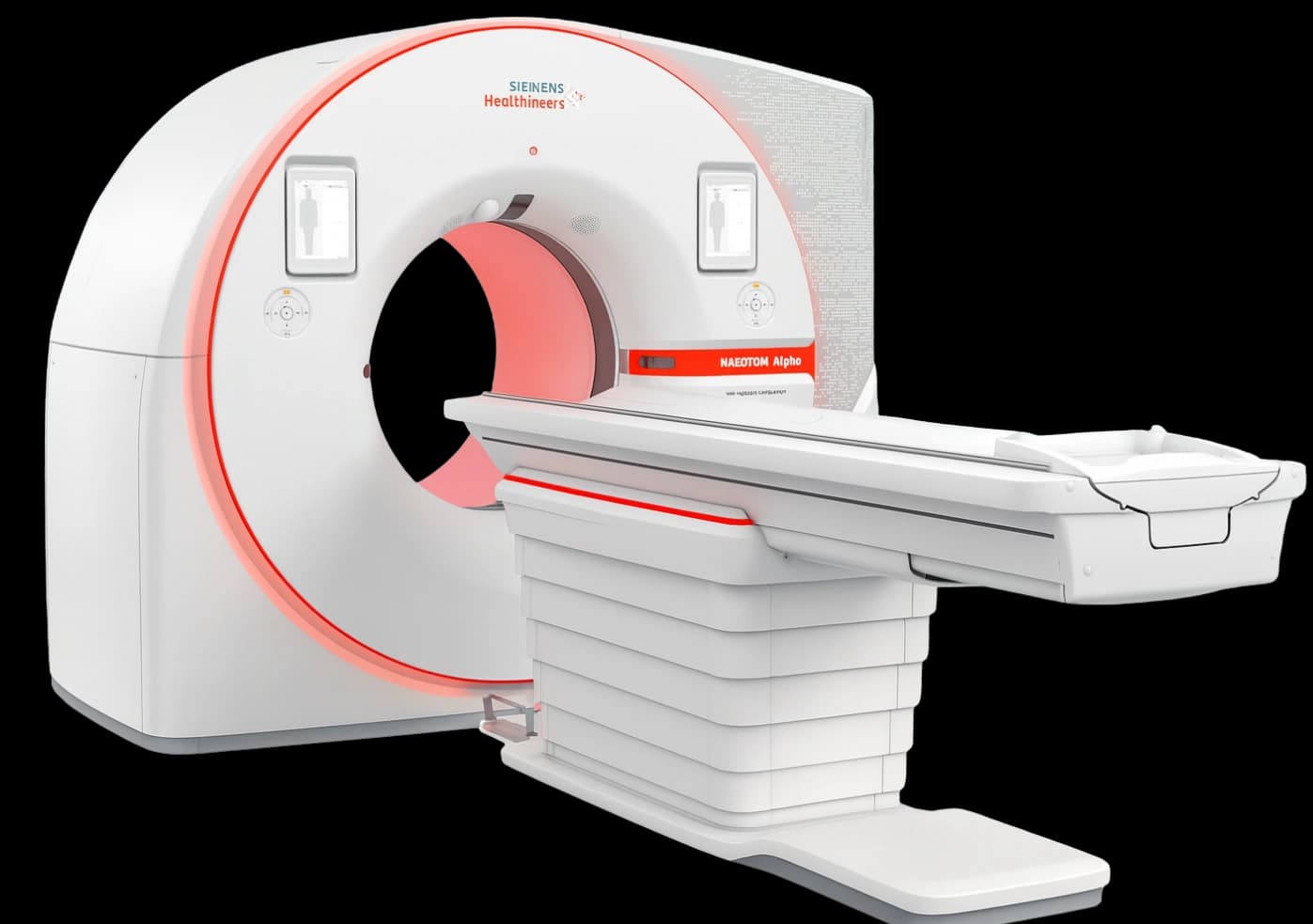
Prevent Heart Attacks
Our AI-powered heart scan measures plaque buildup and blood flow to give a clear picture of your heart attack risk.
0%of Heart Attacks Are Preventable¹
CCTA with AI is the most advanced tool for the early detection of heart disease.
The Limitations of Calcium Scores
Traditional calcium scores only measure calcified plaque. They can show “0” even while dangerous soft plaque silently accumulates.
The Real Threat: Soft Plaque
Soft plaque is unstable, prone to rupture, and causes most heart attacks – yet it goes undetected by calcium scores and stress tests.
The Power of CCTA + AI
CCTA with AI identifies all plaque types, stenosis, and blood flow – reducing death and heart attacks by 41% in just 5 years.²
Once detected, soft plaque can be treated. Lifestyle changes and medication can shrink it, stabilize arteries, and prevent heart attacks that would otherwise strike without warning.
¹ Yusuf S, Hawken S, Ounpuu S, et al. | The Lancet (2004)
² SCOT-HEART Investigators | New England Journal of Medicine (2018)
The Most Powerful AI Heart Scan
Our CCTA with HeartFlow AI combines advanced imaging with intelligent analysis to give you the most comprehensive heart health assessment available.
Measured During Your Scan
Types of Plaque
Quantifies both soft and calcified plaque, plus stenosis (artery narrowing), to identify your true heart attack risk.
Ischemia & FFR
Measures blood flow to see if plaque is limiting oxygen to the heart – a test that previously required an invasive cath.
After Your Scan
AI + Cardiology Report
Within 7 days, you'll receive a detailed report interpreted by a board-certified cardiologist.
Physician Consultation
A 30-minute video consult with one of our physicians to discuss your results & next steps.
Comprehensive Plaque Analysis
Our AI-enabled CCTA maps plaque type, burden, & stenosis across all coronary arteries – showing which deposits pose the greatest risk for heart attacks.
Plaque Type
Identifies calcified, soft, & necrotic plaque. Soft & necrotic plaques are unstable & more likely to rupture – causing the majority of heart attacks.
Plaque Burden
Quantifies the total amount of plaque in your artery walls. A high plaque burden is one of the strongest predictors of future cardiac events.
Stenosis
Reveals where plaque is restricting blood flow. Severe narrowing can exist without symptoms – one reason heart attacks occur with no warning.
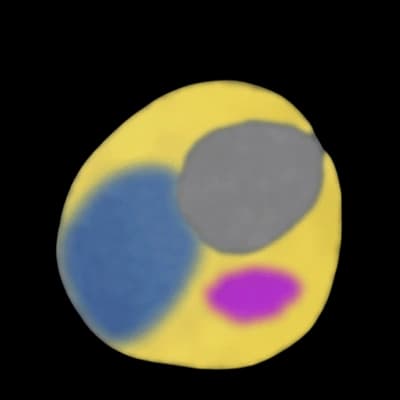
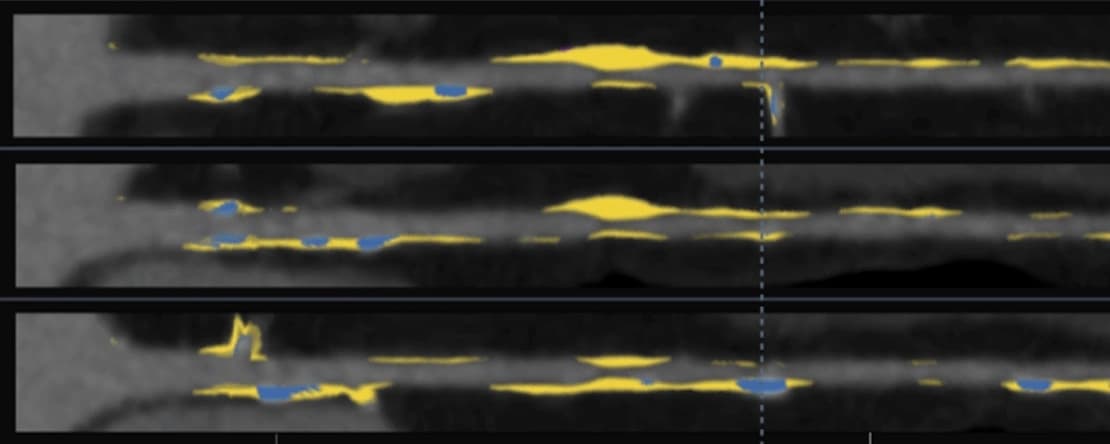
Measurements
349mm³ Plaque Volume
Ischemia Analysis
Fractional Flow Reserve (FFR) measures how plaque impacts blood flow and if it causes ischemia – a dangerous reduction in oxygen supply to the heart. It reveals whether a blockage demands treatment or can be safely monitored.
Lesion-Specific Insight
FFR is calculated for each plaque, showing which lesions are restricting blood flow and which are not. This enables highly targeted treatment.
Avoid Unnecessary Procedures
In the past, the only way to measure FFR was with invasive catheterization in the hospital. Now it's done non-invasively, helping you avoid procedures you don't need.
Smarter Treatment Decisions
Patients with dangerously low FFR can be referred for stents or bypass, while those with normal flow can be safely monitored.
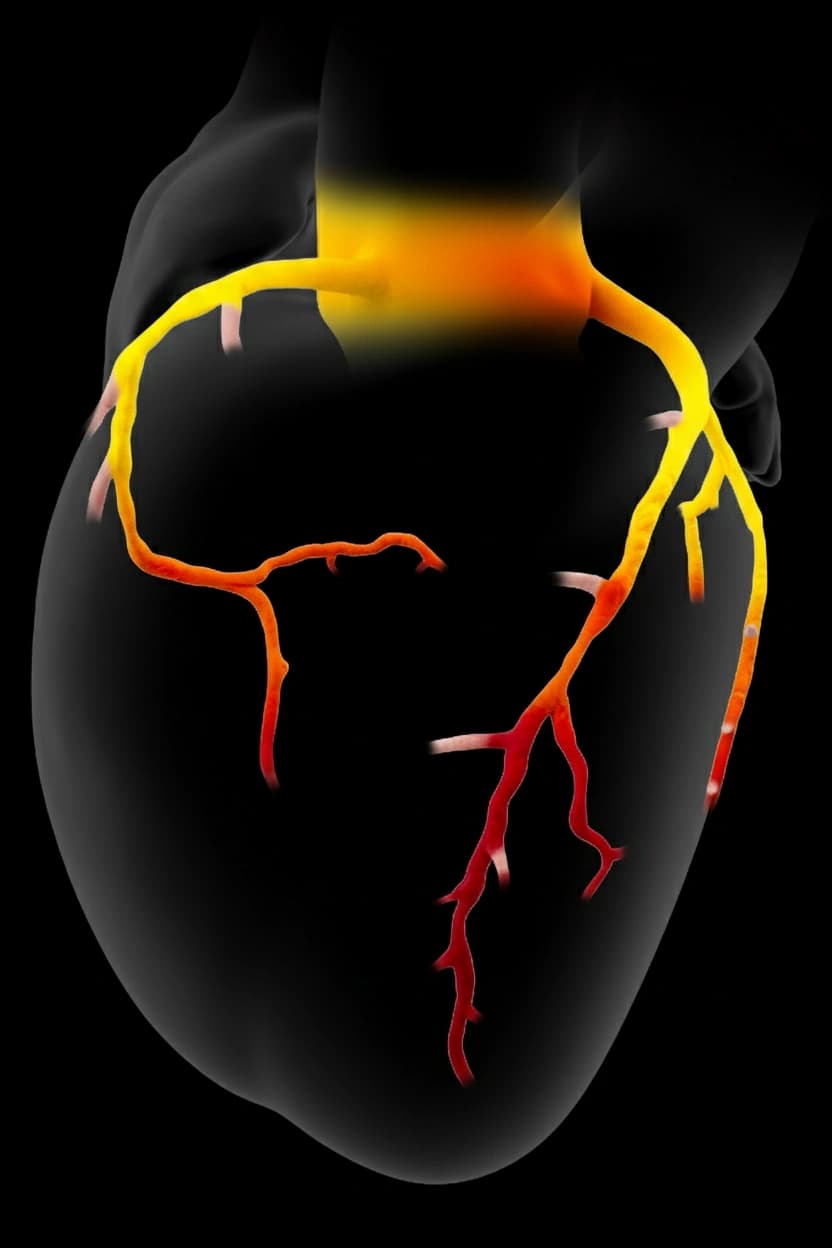
How to Get Started
Our AI Heart Scan requires a physician referral.
Click the button below to learn more about the process.
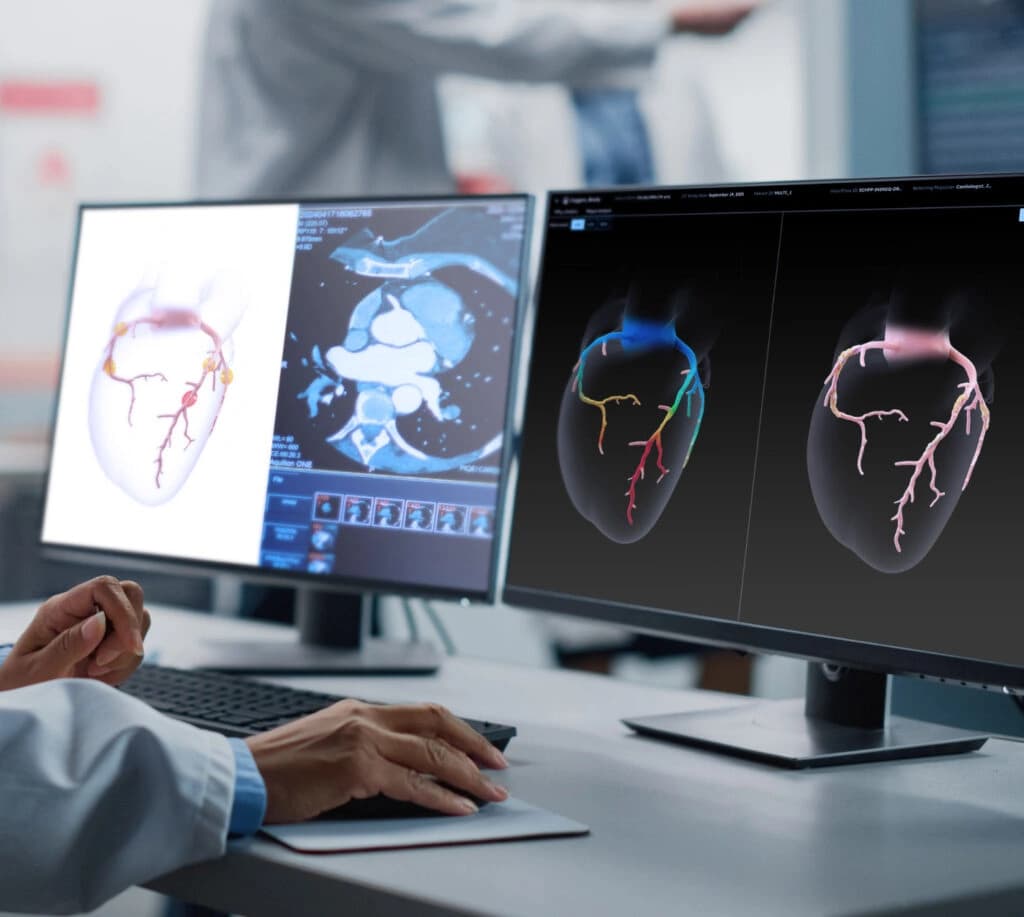
Why Get an AI Heart Scan?
Symptoms
Chest pain, shortness of breath, or unexplained fatigue? Our scan can help uncover the cause.
Being Proactive
Heart disease is the #1 cause of death, yet it develops silently. A scan can reveal risk years before symptoms.
Family History
If heart disease runs in your family, a scan enables you to detect it early and stay ahead.
Book your AI Heart Scan and take control of your cardiovascular health today.
Frequently Asked Questions
CCTA is covered by most insurance plans when ordered by your physician for the evaluation of chest pain or other risk factors for heart disease. In addition, the FFR-CT analysis has Class I coverage, meaning most payers reimburse it when your CCTA shows a 40–90% narrowing in a coronary artery. AI plaque analysis is also gaining coverage. A new national CPT code takes effect January 1, 2026, which will make reimbursement widespread. Until then, coverage varies by insurance carrier, but is expanding quickly as payers adopt the technology. At TrueScan, we submit all claims following payer guidelines and work with your insurance to maximize coverage for your test.
Yes. A physician referral is required before scheduling the AI Heart Scan. Your provider will review your medical history, risk factors, and medications to make sure the scan is safe and appropriate for you. If any blood work or prescriptions are needed, your provider will order them in advance. Once we receive the referral, our scheduling team will contact you to set up your appointment.
A calcium score test is a simple, non-contrast CT that measures only one thing: the total amount of calcified plaque in your arteries. While this number can show overall plaque burden, it has major limitations. It does not tell you whether that plaque is actually narrowing your arteries (stenosis), whether blood flow is affected, or whether you might need treatment such as stents or bypass. Even more importantly, calcium scoring completely misses soft and necrotic plaque – the unstable types most likely to rupture and cause heart attacks. In fact, many patients can have a calcium score of “0” while still carrying dangerous high-risk plaque. A CCTA with contrast, on the other hand, provides a complete view of your coronary arteries. It shows not only the anatomy, but also the presence, type, and severity of plaque – soft, calcified, and necrotic. With AI analysis (HeartFlow), it can even measure how each narrowing impacts blood flow, helping determine whether intervention is needed or whether plaque can be safely monitored and treated with lifestyle changes or medications. In short: a calcium score gives you a rough total of calcified plaque, while a CCTA with HeartFlow delivers a full roadmap of your arteries, plaque, and blood flow – critical insights that guide real treatment decisions.
Yes. An AI Heart Scan is a CCTA enhanced with HeartFlow AI. It includes everything a standard CCTA offers – detailed images of your coronary arteries – plus advanced AI analysis that measures plaque, stenosis, and blood flow (FFR) for a more complete assessment.
Yes. CCTA is considered a very safe and well-established test. Complications are extremely rare. The scan uses a low dose of radiation, along with IV contrast, both of which are monitored carefully to ensure safety. For most people, the benefits of identifying dangerous plaque or restricted blood flow far outweigh the small risks.
